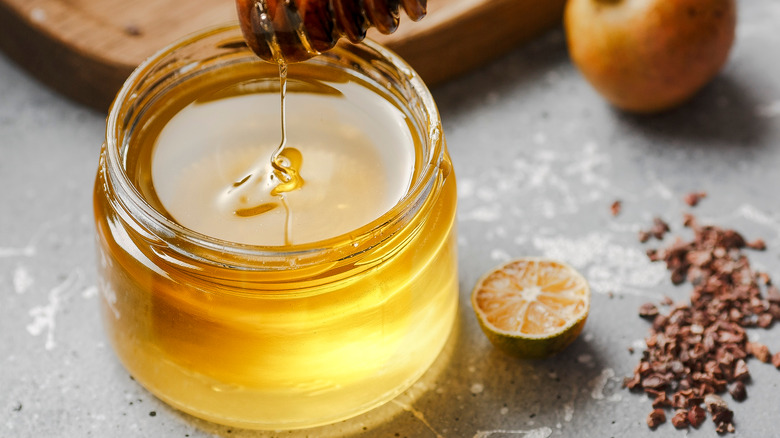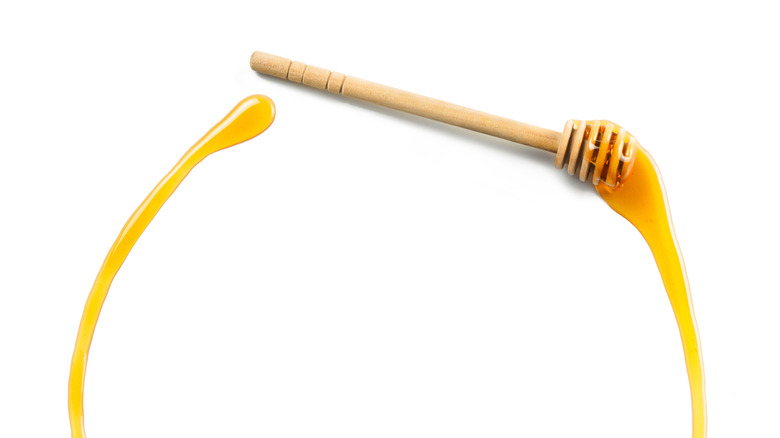The Real Difference Between Raw And Filtered Honey
Honey is probably one of the most underrated sweeteners today. It goes well on fruit, bread, meat, and veggies, while adding a unique flavor all its own. And while too many people are still missing out on the golden goodness that is honey, its fans are split more or less into two groups. There are those who don't exactly care if their honey is raw or filtered. And then there are those who think raw honey is the only way to go.
The divide is more or less based on the health impacts honey is supposed to have. Several benefits have been proven, as outlined by the Mayo Clinic. These include honey's ability to soothe coughs and sore throats, the sweetener's antioxidant content, and the use of medical-grade honey in treating wounds when applied topically. Of course the raw versus filtered debate is centered on the benefits that come with eating honey. And proponents for the raw deal insist that the benefits are greatest when the honey isn't filtered.
Despite what the word "filtered" might call to mind, honey doesn't get the label unless it's been pasteurized through heating and cooling. If a batch of honey is simply run through a strainer or manual filter, it is referred to as "strained" honey. The process of heating and then cooling honey is meant to prevent crystallization. This is why most of the honey you see in the store — save the organic or local options — always look like liquid gold. Without processing, honey often crystalizes in the bottle.
What the research says
Crystalized honey is still delicious. But it can be frustrating to work with, which is why some people prefer to avoid the problem altogether and buy filtered honey. According to some honey fans, however, these people might be missing out on what makes honey so special.
A 2004 study in the Journal of Chromatography found that honey contains roughly 20 amino acids as well as 30 types of plant compounds known as polyphenols. These antioxidants have been linked to better gut health, as stated in this 2013 review from the Journal of Nutritional Biochemistry, as well as improved circulation.
Raw honey fans insist that processing honey into its filtered form destroys some of these antioxidants. The heating and cooling process, they claim, breaks down the amino acids and antioxidants so that all you end up with is a flavorful sweetener with few additional benefits. Unfortunately there's just not enough evidence to prove them right. Or wrong.
Italian scientists ran a study in 2004 that compared raw honey from a local farmer's market to filtered honey from the store. The researchers found that the raw honey was loaded with antioxidants, amino acids, and trace minerals, while the filtered honey had almost none. The United States-based National Honey Board, however, found few differences when they conducted a similar study independently from the Italian researchers.
It may be that the difference lies in where the honey is made or the specific type of filtering that the honey goes through. There's just not enough evidence right now to say which is better. For now, at least, it's all a matter of taste.


